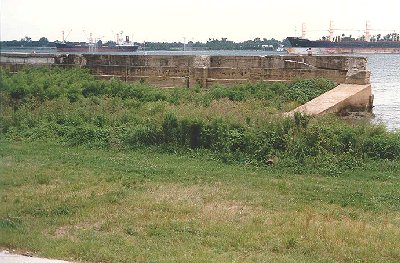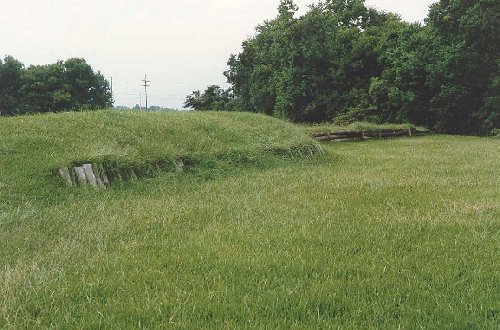
New Orleans
January 8, 1815
After the Revolution, neither side fully complied with the treaty of peace. Because of the pressures of the Napoleonic War, Britain began to seize men from American ships and force them into the Royal Navy. In response to these insults, in 1812, the Congress declared war. The war was far from successful, with a British force burning Washington D.C. and the federal government defaulting on its debts. By 1814, peace negotiations were in progress while the war continued. A British force eventually under Edward Packenham was charged with seizing New Orleans, which would shut off all trade out of the Mississippi River and potentially throttle America's westward expansion. In 1814, Andrew Jackson had defeated the Creek Indians, successfully defended Mobile, and captured Pensacola, a Spanish possession used by the British. Now he joined a small group of regulars, Louisiana militia, Tennessee and Kentucky backwoodsmen, and Baratarian pirates to defend the vital city.
The British defeated American gunboats and gained control of Lake Borgne. Troops were transported across the narrow lake with barges and advanced across marshes to a strip of land astride the Mississippi. On December 1814, Jackson attacked but failed to destroy the British force. The American army entrenched along a drainage canal and awaited the British. On New Years Day 1815, a British reconnaissance in force was repulsed, but Packenham decided on a major assault.

Mississippi River
In the early morning of January 8th, about 1,400 British troops were to cross the river, attack the American lines there and enfilade Jackson's main line on the east side of the river. Just over 300 men actually made it across the river, but they successfully captured the American lines. This would be one of the few British successes of the day.
 American Line
From the Rear
American Line
From the Rear
A total of seven batteries protected the American line. From right to left they were, 1)Humphrey 12pdr reg, 2)Norris's naval battery 3) Dominique You - the Baratarian pirates, 4)Crawley, 5)Cpt. Perry and Lt. Kerr, 6)Spotts, and 7)de Flaujeac.

Into the Swamp
The American line also extended into the swamp.